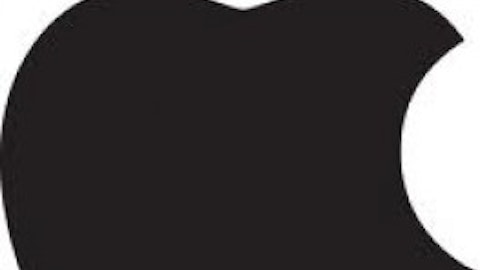
Image source: NVIDIA
Last year, NVIDIA Corporation (NASDAQ:NVDA)‘s Tegra 3 processor scored some nice tablet wins, most notably finding a place in the first iterations of both Google Inc (NASDAQ:GOOG)‘s Nexus 7, and Microsoft Corporation (NASDAQ:MSFT)‘s Surface RT tabs.
And, while the Surface RT turned out be a total flop, selling just 1.5 million units over its first five months, sales for Google Inc (NASDAQ:GOOG)’s first-gen Nexus 7 ramped up to as many as 1 million units per month by the end of 2012.
While Microsoft Corporation (NASDAQ:MSFT) did recently confirm the Tegra 4 will power its next Surface RT models, it’s hard to be excited for NVIDIA Corporation (NASDAQ:NVDA), given the dismal sales performance of the previous version. That’s why it hurt NVIDIA Corporation (NASDAQ:NVDA) so badly when QUALCOMM, Inc. (NASDAQ:QCOM) stepped in earlier this year to entice Big G to switch to the latest Snapdragon processors for its next round of Nexus 7, which are largely expected to once again resonate well with tablet-hungry consumers.
I suppose you can’t really blame Google Inc (NASDAQ:GOOG) for the change. After all, NVIDIA’s Tegra 4 hadn’t launched yet, and nobody could reasonably expect them to wait around when QUALCOMM, Inc. (NASDAQ:QCOM) was offering a perfectly reasonable, higher-performance mobile processor than the Tegra 3.
As it stands, many analysts are currently worried about NVIDIA Corporation (NASDAQ:NVDA)’s ability to convince electronic device makers to use its new Tegra 4 processors in their latest creations — never mind that Tegra 4 shipments still hadn’t begun to truly ramp up as of the company’s quarterly earnings call last month, at which time, NVIDIA management also reminded investors thatTegra 4 in February had more design wins than Tegra 3 had in total.
If you want something done right…
At the same time, NVIDIA’s recently released mobile gaming console, dubbed “Shield,” proves the company isn’t afraid to get its hands dirty by building its own Tegra 4-powered devices, either. But remember, given the relatively niche market for devices like Shield, I’ve said all along that we shouldn’t expect NVIDIA Corporation (NASDAQ:NVDA)’s first real Tegra 4-branded product to move the revenue needle in the near term.
Now, however, NVIDIA Corporation (NASDAQ:NVDA) could be gearing up to give investors much more to be excited about with its own Tegra 4-branded tablet, tentatively named “Tegra TAB.” On Monday, mobile tech news site Liliputing astutely noticed the Tegra TAB was making its rounds through the FCC certification process on Monday, with the FCC link, complete with label information, a user manual, and internal and external photos of the device:

Image source: apps.fcc.gov
All things considered, that’s why, at this point, the Tegra TAB looks beyond the scope of a mere OEM reference design like the mobile Tegra 4i-powered Phoenix smartphone, which NVIDIA created in February to help its partners more efficiently bring their own Tegra 4i phones to market.
But, as I noted last week, NVIDIA management told investors as of a few weeks ago that the Tegra 4i — which is the company’s first processor to be fully integrated with a 4G LTE modem — was still working through the certification process with a number of leading mobile carriers in the U.S. Unfortunately, that process likely won’t be finished until closer to the end of 2013.
Meanwhile, QUALCOMM, Inc. (NASDAQ:QCOM) has been steadily increasing its Snapdragon marketing efforts to build consumer awareness and grow its brand through fun-to-watch TV spots like this one:
In the end, even though I’m a NVIDIA Corporation (NASDAQ:NVDA) shareholder myself, I have to admit NVIDIA could learn a thing or two from Qualcomm, considering they’ve never really aggressively marketed the Tegra brand directly to everyday consumers.
But, putting those marketing concerns aside, I still think if NVIDIA manages to build its Tegra TAB well enough, there’s no reason to believe consumers wouldn’t ultimately catch on over the long run.
The article NVIDIA’s Next Big Tablet Win: Itself? originally appeared on Fool.com and is written by Steve Symington.
Fool contributor Steve Symington owns shares of NVIDIA. The Motley Fool recommends Google and NVIDIA. The Motley Fool owns shares of Google, Microsoft, and Qualcomm.
Copyright © 1995 – 2013 The Motley Fool, LLC. All rights reserved. The Motley Fool has a disclosure policy.




